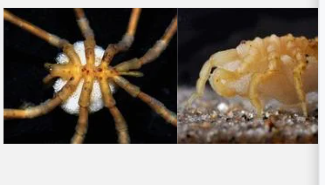BIO121a Arthropods Chapter 13?
1/53
There's no tags or description
Looks like no tags are added yet.
Name | Mastery | Learn | Test | Matching | Spaced |
|---|
No study sessions yet.
54 Terms
What is the exoskeleton made of
chitin
What % of all animals are arthropods
85%!!!
Are arthropods proto or deuterostomes
protostomes
How many true-tissue layers do arthropods have
3 they are triploblastic
What type of symetry do arthropods have
bilateral
What type of coelomate are arthropods
They are coelomates they have a true coelom
Do arthropods moult?
YES arthopods are part of clade ecdysozoa
What is tagmatization
body regions modified for specialized functions
(segmented with fused)
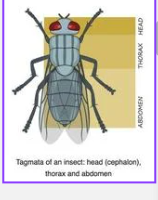
What is the internal body cavity called
the hemocoel
(same as mollusks)
Which cells secrete the exoskeleton
Epidermal cells
What is the Epicuticle
The Outer Waxy Lipoprotein of the exoskeleton
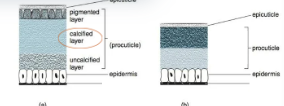
What is the Procuticle
The inner (majority) of the exoskelton made of chitin
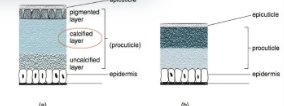
What do crustaceans have in their exoskeleton to harden it
CaCO3 in the procuticle
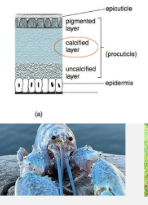
What is tanning
the process that harden exoskeleton in ALL arthropods
portein cross-links from spontaneously in procuticle
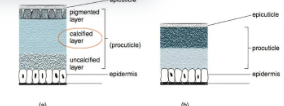
What must arthropods do to grow
entire exoskeleton must be shed at once,
(like nematodes with cuticle)
How do arthropods moult?
Old exoskeleton is degraded by enzymes and split open by allowing wateror air in to “inflate”it
How are arthopods able to be strategical with their moulting times
Because moulting times are under neural and hormonal control
What neural thing do crustaceans use to control moulting times
The Y-organ in the head
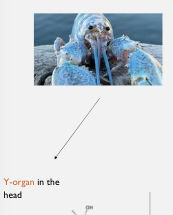
What does the Y-organ do
it produces Ecdysteroids to trigger moulting

what hormanal thing do insectahave to control moulting times
They have Prothoracic glands int the thorax
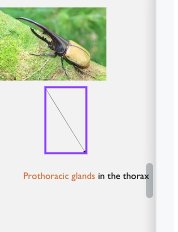
What do the prothoracic glands do
The yproduce ecdysteroids to trigger moulting

What nervous system things do arthropods have?
They have a complex brain and sensory structures in the head region.
Ventral nerve cord (ganglia)
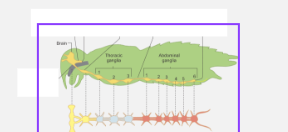
What is special about the arthropod ventral nerve cord and ganglia
Ventral nerve cord is metamuristic and ganglia are associated with body segments
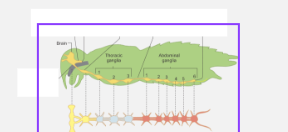
What type of circulatory system do arthropods have
Open/closed hybrid system
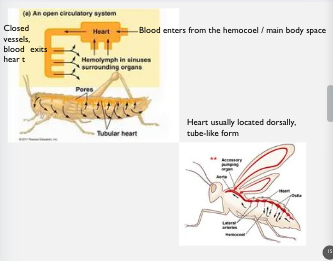
How does blood leave the heart in the arthropod circulatory system
blood leaves the heart through closed vessels
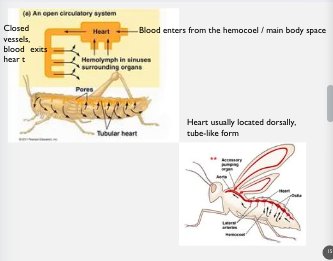
How does blood enter the heart in the arthropod circulatory system
blood enters the heart via holes directly from the hemocoel
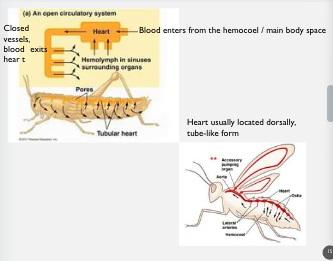
What TWO visual systems do arthropods have
Ocelli and
Compound eye
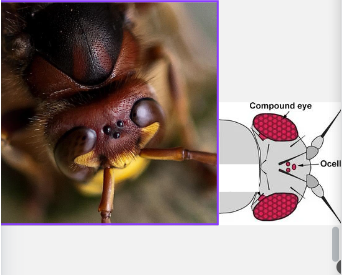
What are ocelli
Small cup with light sensative surface for visual
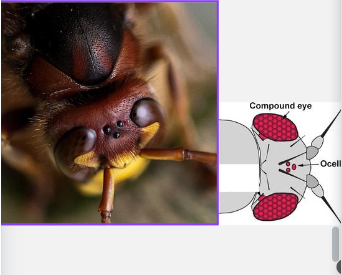
What is the compound eye structure
an “eye” filled with many stacks of lenses and receptor cells organized into units called OMMATIDIA
What can the bcompound eye detect
UV and poralized light
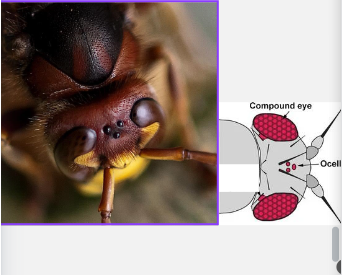
What all type of reproduction do arthropods perform
Sexual, asexual, and parthenogenisis
mix of internal and external fertilization
What subphylum are Spiders, Scorions, Horshoe crabs, sea spiders
Chelicerates
Which subphylum is the only arthropods with NO antennae
Chelicerates
Which subphylum has its body divided in two sections with no distinct head
Chelicerates
What are the first pair of appendages called in subphyla Chelicerates
Chelicerae
WHat is the Head+Thorax (cephalothorax) region in Chelicerates called
Prosoma
Segments 1-6
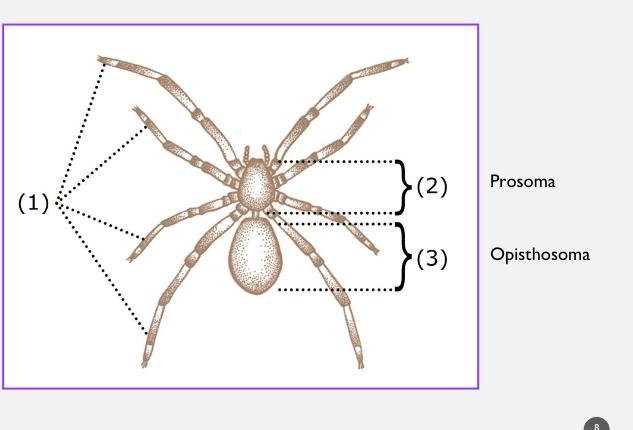
What is the Abdomen region in Chelicerates called
Opisthosoma
Segments 7-20
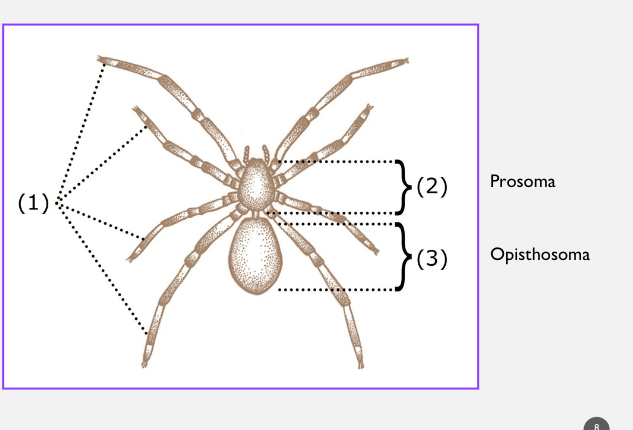
What are Chelicerae
Clawed appendages on either side of chelicerates mouth for food ripping and predation
Segment 1
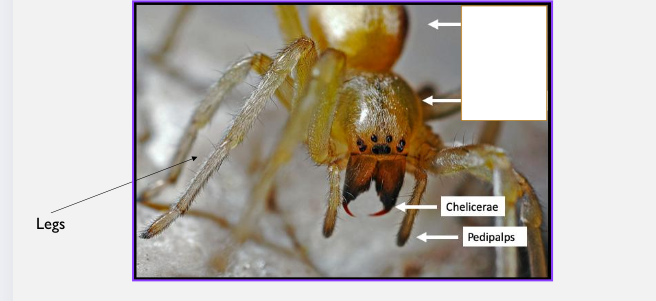
What are Pedipalps
Food manipulators with blunt ends in chelicertaes
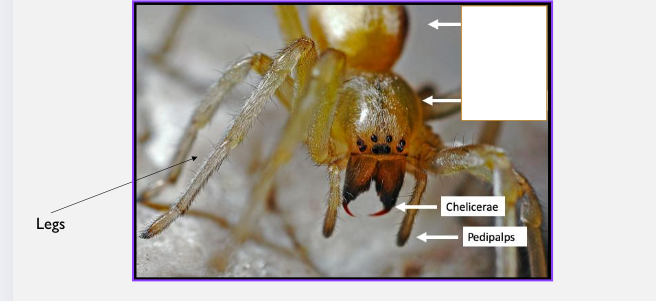
How many pairs of walking legs do chelicerates have
4 pairs
Segments 3-6
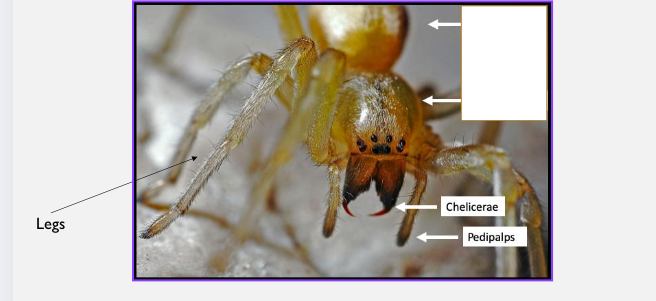
What subphylum and class are horshoecrabs
Subphylum chelicertaes
class Merostomata
WHat are book gills
Appendages of opisthosma used for gas exchange using water (class merostomata) and in class arachnida with air
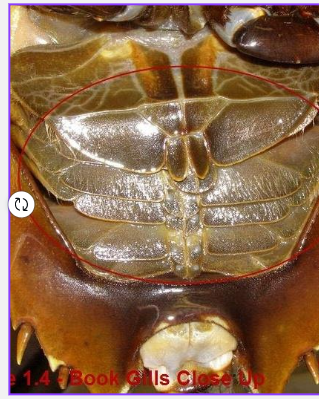
What class of chelicerate are Spiders, Scorpions, Mites and Ticks
Class arachnida
What animal is class arachnida subphylum chelicerate are
Solitary carnivores interact only to MAte
SPiders
What animal of class arachnida subphylum chelicerate are
MAINLY nocturnal, Solitary carnivores, and are often canibalistic
Scorpions
What animal is class arachnida subphylum chelicerate are
Commonly Parasitic, may live on or associate with hosts
Mites and Ticks
What are pedipalps modified into in Scopions
Claws
What is the Pedicel in class arcchnida
The narrow stalk that separates spider Opisthosoma and Prosoma
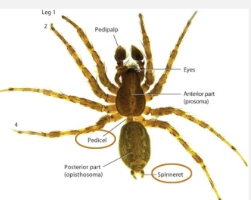
What are spinnerets
abdominal appendages that release silk in spiders
What are booklungs
modified bookgills that sit inside the abdomen in arachnids
for respiration
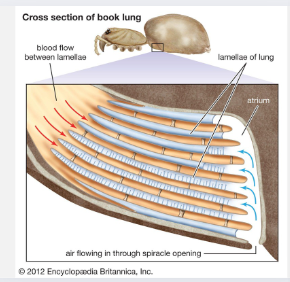
What class are Sea spiders
Class Pycnogonida
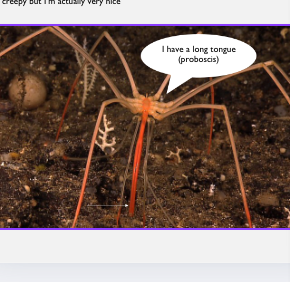
What class of phylum arachnida subphylum chelicerae have Proboscis
Class Pycnogonida
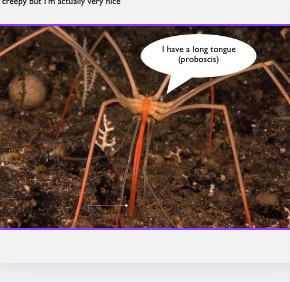
What do Sea spiders (class Pycnogonida) prey on?
Seesile invertebrates
Sponges and anemones
What are ovigers
The egg carrying organ in male Sea spiders (class pycnogonida)
On 3rd pair of appendages
